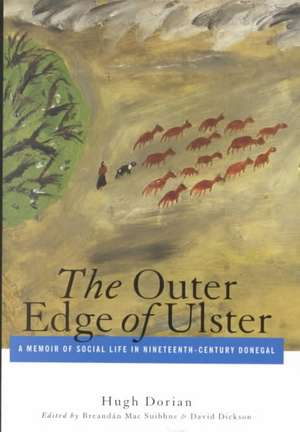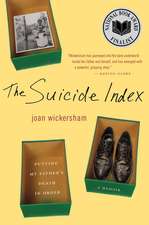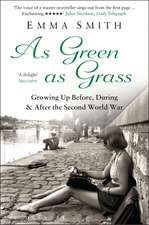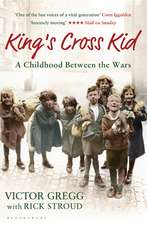Outer Edge of Ulster – A Memoir of Social Life in Nineteenth–Century Donegal
Autor Hugh Dorian, Breandán Mac Suibhne, David Dicksonen Limba Engleză Paperback – 14 sep 2001
| Toate formatele și edițiile | Preț | Express |
|---|---|---|
| Paperback (1) | 160.77 lei 3-5 săpt. | +19.59 lei 4-10 zile |
| MR – University of Notre Dame Press – 14 sep 2001 | 160.77 lei 3-5 săpt. | +19.59 lei 4-10 zile |
| Hardback (1) | 697.11 lei 6-8 săpt. | |
| University of Notre Dame Press – 31 aug 2001 | 697.11 lei 6-8 săpt. |
Preț: 160.77 lei
Nou
Puncte Express: 241
Preț estimativ în valută:
30.77€ • 31.78$ • 25.61£
30.77€ • 31.78$ • 25.61£
Carte disponibilă
Livrare economică 04-18 martie
Livrare express 15-21 februarie pentru 29.58 lei
Preluare comenzi: 021 569.72.76
Specificații
ISBN-13: 9780268037116
ISBN-10: 0268037116
Pagini: 358
Dimensiuni: 152 x 227 x 23 mm
Greutate: 0.48 kg
Ediția:1
Editura: MR – University of Notre Dame Press
ISBN-10: 0268037116
Pagini: 358
Dimensiuni: 152 x 227 x 23 mm
Greutate: 0.48 kg
Ediția:1
Editura: MR – University of Notre Dame Press
Recenzii
“This is a riveting view of traumatic social change in Ireland, recorded with pithy eloquence by a combative local schoolteacher, enhanced by a masterly introduction and notes.” —Times Literary Supplement (“International Books of the Year”)
"Rich and beautifully-written evocations of a time and a place. Dorian's hitherto unpublished memoirs will delight anyone interested in the life of the 'rude people'-the resilient poor of 19th century Ireland." —The Sunday Tribune
"A fascinating account of a world which has passed away . . . It should become a classic." —Irish Independent
Notă biografică
BREANDÁN MAC SUIBHNE is program coordinator for the Keough Institute for Irish Studies at the University of Notre Dame.
DAVID DICKSON is senior lecturer in the Department of Modern History at Trinity College, Dublin.
DAVID DICKSON is senior lecturer in the Department of Modern History at Trinity College, Dublin.
Descriere
Hugh Dorian was born in poverty in rural Donegal in 1834. He survived Ireland’s Great Famine, only to squander uncommon opportunities for self-advancement. Having lost his job and clashed with priests and policemen, he moved to the city of Derry but never slipped the shadow of trouble. Three of his children died from disease and his wife fell drunk into the River Foyle and drowned. Dorian declined into alcohol-numbed poverty and died in an overcrowded slum in 1914.
A unique document survived the tragedy of Dorian’s life. In 1890 he completed a "true historical narrative" of the social and cultural transformation of his home community. This narrative forms the most extensive lower-class account of the Great Famine. A moving account of the lives of ordinary people in extraordinary circumstances, it invites comparison with the classic slave narratives of Frederick Douglass and Harriet Jacobs. Dorian achieves a degree of totality in his reconstruction of the world of the pre-Famine poor that is unparalleled in contemporary memoir or fiction. He describes their working and living conditions, sports and drinking, religious devotions and festivals. A sense of loss, closer to bereavement than nostalgia, is threaded through the text: it is a lament for the might have been — the future as imagined before the Famine — rather than the actual past. Dorian’s narrative was never published in his own lifetime and all but forgotten after the author’s death. First published in Ireland in August 2000, The Outer Edge of Ulster includes a scholarly introduction that traces the troubles that beset the author and locates the narrative in wider literary contexts. Appearing for the first time in America, this critically acclaimed book offers an intimate look at the everyday lives of ordinary people facing extraordinary challenges.
A unique document survived the tragedy of Dorian’s life. In 1890 he completed a "true historical narrative" of the social and cultural transformation of his home community. This narrative forms the most extensive lower-class account of the Great Famine. A moving account of the lives of ordinary people in extraordinary circumstances, it invites comparison with the classic slave narratives of Frederick Douglass and Harriet Jacobs. Dorian achieves a degree of totality in his reconstruction of the world of the pre-Famine poor that is unparalleled in contemporary memoir or fiction. He describes their working and living conditions, sports and drinking, religious devotions and festivals. A sense of loss, closer to bereavement than nostalgia, is threaded through the text: it is a lament for the might have been — the future as imagined before the Famine — rather than the actual past. Dorian’s narrative was never published in his own lifetime and all but forgotten after the author’s death. First published in Ireland in August 2000, The Outer Edge of Ulster includes a scholarly introduction that traces the troubles that beset the author and locates the narrative in wider literary contexts. Appearing for the first time in America, this critically acclaimed book offers an intimate look at the everyday lives of ordinary people facing extraordinary challenges.











